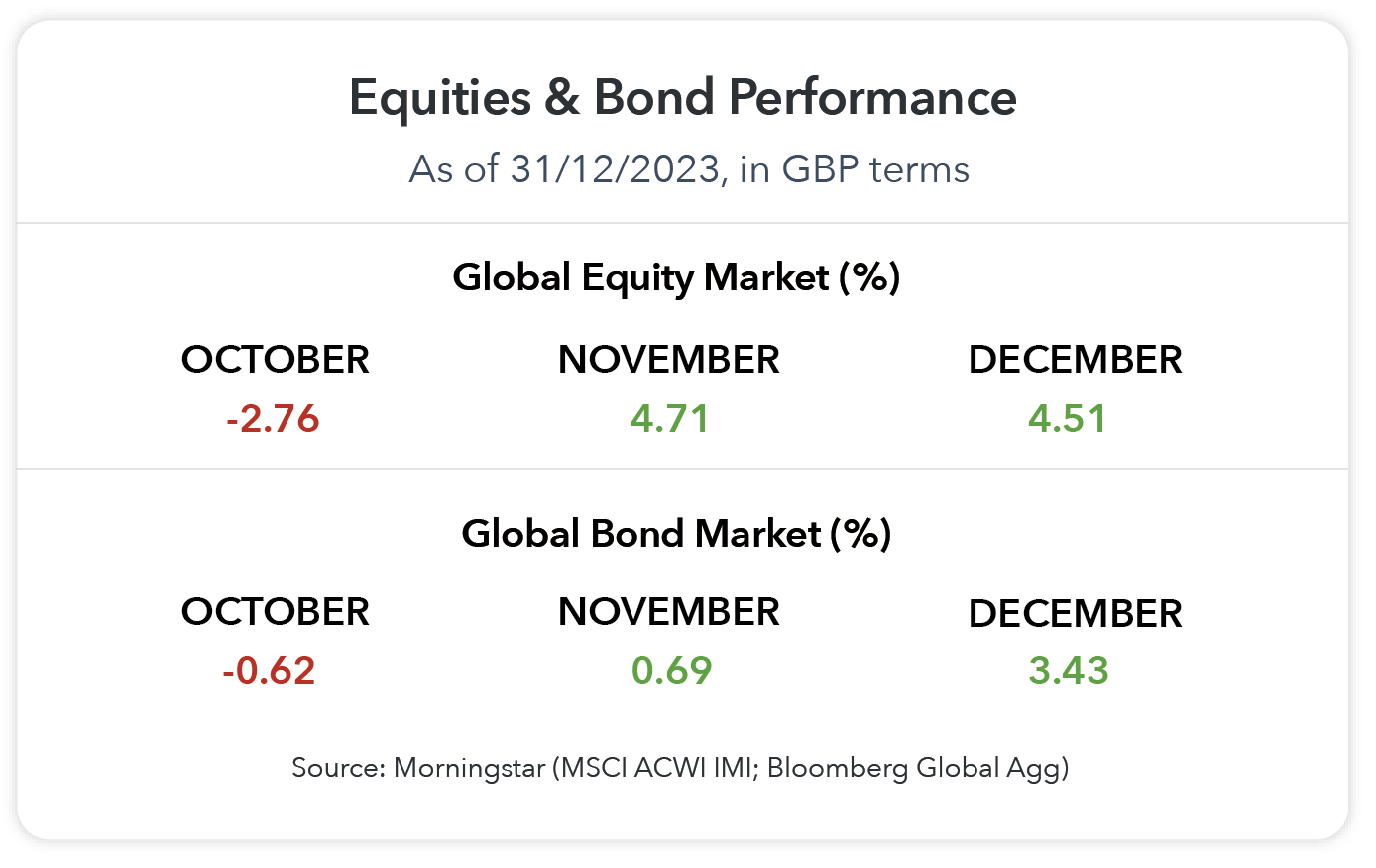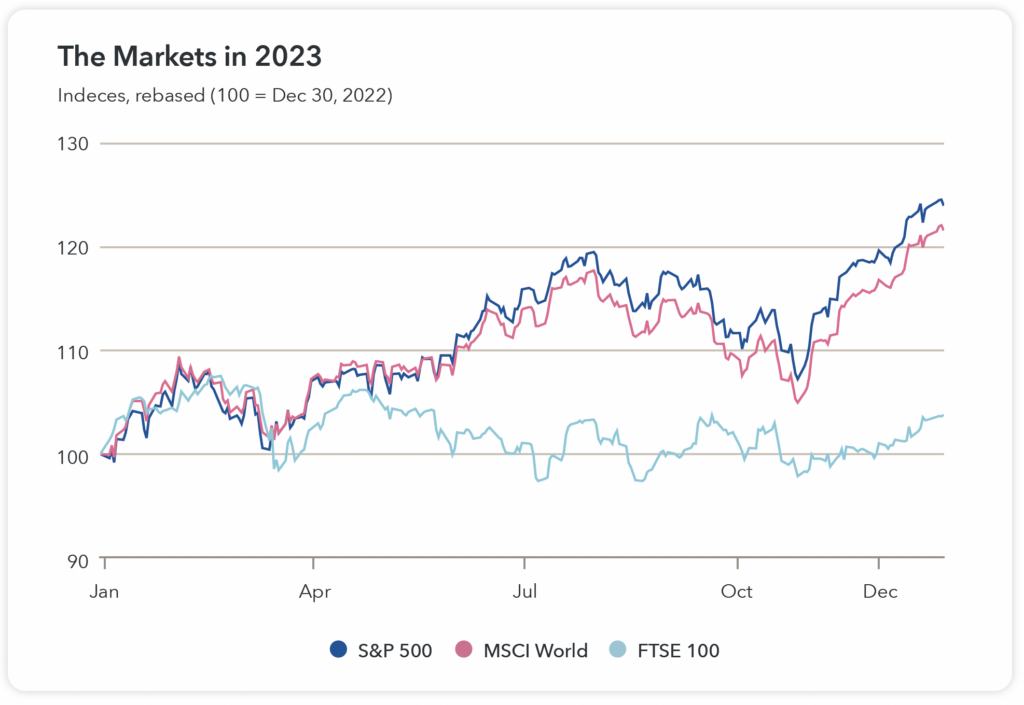December Economic Background
• UK inflation falls to 3.9% in November
• Bank of England holds rates at 5.25%
• Federal Reserve holds rates at 5.25-5.5%
• Global stock markets recorded their best year since 2019

Market Review – December 2023
UK Inflation: In December, the Office for National Statistics (ONS) disclosed that the consumer price index experienced a 3.9% annual rise in November, marking a notable decline from the 4.6% in October and the 6.7% increase in September. This inflation figure fell below the market consensus of 4.4%, driven by reduced contributions from transport, recreation and culture, as well as food and non-alcoholic beverages. The reading for November was the lowest since September 2021, with prices experiencing a month-on-month decline of 0.2%, following no change in October. Despite the positive shift in outlook for inflation over the last few months, the repercussions of the inflation crisis will persist even after prices return to more conventional levels. The challenges of the past two years will likely mean the memories of these hardships are expected to fade slower than the inflation figures themselves. The UK stock market lagged behind due to a combination of higher exposure to underperforming energy stocks and the strength of the sterling.
Interest Rates: During its December meeting, the Bank of England (BoE), with a majority of 6-3, opted to maintain interest rates at a 15-year high of 5.25%, marking the third consecutive decision of no change. The three dissenting members advocated for a 25-basis point rate hike, citing the relatively tight labour market and evidence of ongoing inflationary pressures. Despite these assertions, investors anticipate a cut in UK interest rates throughout 2024. Nevertheless, there has been an adjustment in their expectations regarding the timing of rate cuts, with the first now fully priced in for June, shifting from the initial expectation of May. In a similar fashion, the Federal Reserve (Fed) held rates steady for the third straight time, whilst also indicating multiple rate cuts in 2024, assuming quarter percentage point increments. That’s less than what the market had been pricing, but more aggressive than what officials had previously indicated. However, with real rates, or the difference between the fed funds rate and inflation, running high, the Fed would be more likely to act if inflation continues to fall.
December Rally: Experiencing their strongest year since 2019, global stock markets concluded the year with a blistering two-month surge. The S&P 500, finishing just below its record, was propelled by a significant change in interest rate forecasts, influenced by recent data indicating a more rapid decline in inflation than previously anticipated across Western economies. Traders currently expect six rate cuts by both the Federal Reserve and the European Central Bank (ECB) by the close of 2024, marking a substantial reversal from the fears of “higher for longer” earlier in the year that triggered a global bond sell-off. The UK stock market lagged behind due to a combination of higher exposure to underperforming energy stocks and the strength of the sterling. Many of the companies listed on the FTSE 100 generate a significant portion of their revenue in foreign currencies. When the sterling strengthens, the overseas earnings of these companies, when converted back to pounds, can be lower. This currency impact can lead to lower reported revenues and profits in sterling terms.

Source: LSEG via markets.ft.com

Blog Post by Sam Startup
Investment Analyst at ebi Portfolios
What else have we been talking about?
- Q2 Market Review 2024
- June Market Review 2024
- Do Political Events Impact Financial Markets?
- Is there an AI bubble?
- May Market Review 2024




